Shape Recognition Easy Geometry Worksheets for Ages 3-8
17 filtered results
-
From - To
Unlock your child's potential with our "Shape Recognition Easy Geometry Worksheets" designed specifically for ages 3-8! These engaging, colorful worksheets help young learners identify and understand various shapes through fun exercises that support early math skills. Perfect for home or classroom use, our materials offer a playful approach to learning with tracing, coloring, and matching activities, making shape recognition enjoyable. Foster your child's cognitive development while building a strong foundation in geometry. Whether your little one is just starting out or needs a little extra practice, our worksheets are a fantastic resource for enriching their learning experience. Download and start today!
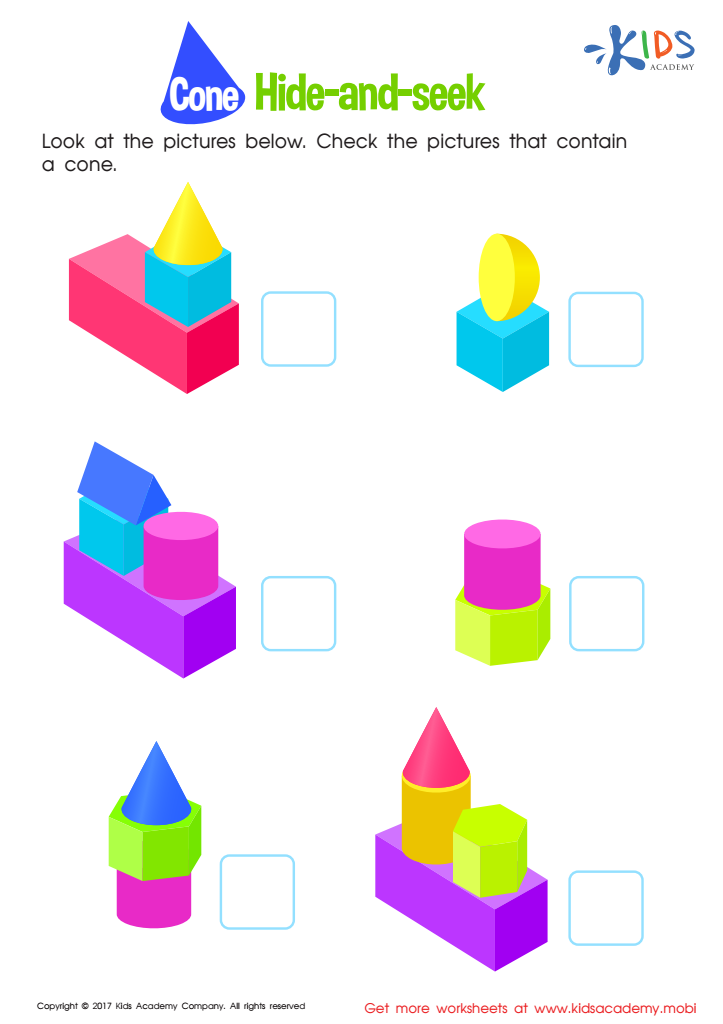

Cone Hide-and-Seek Worksheet
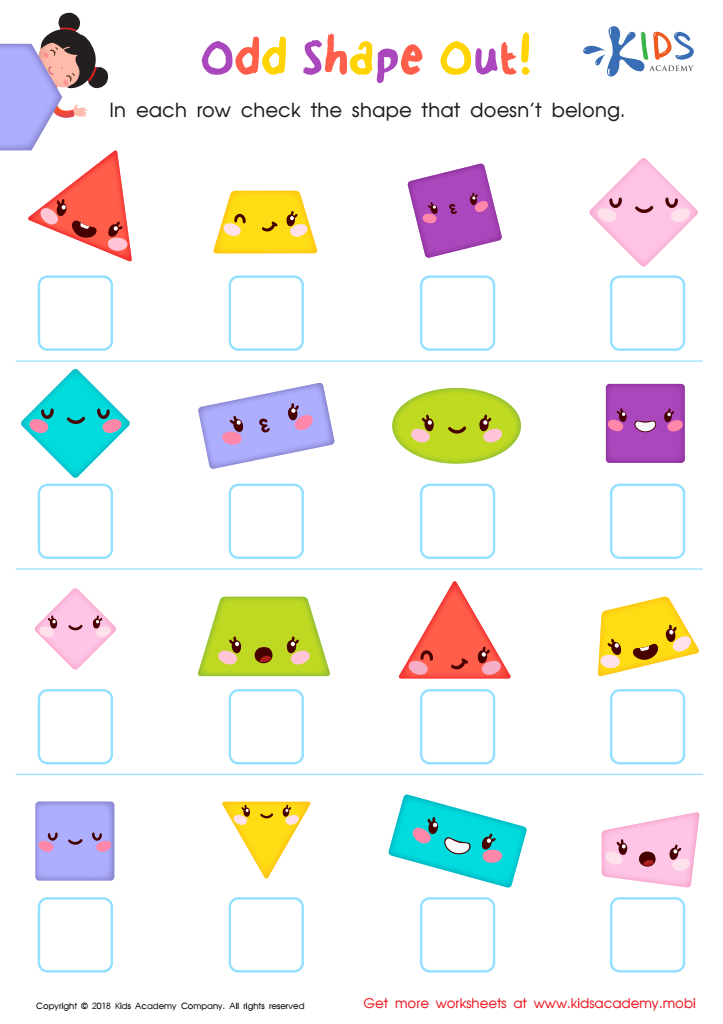

Odd Shape Out Worksheet for Grade 3
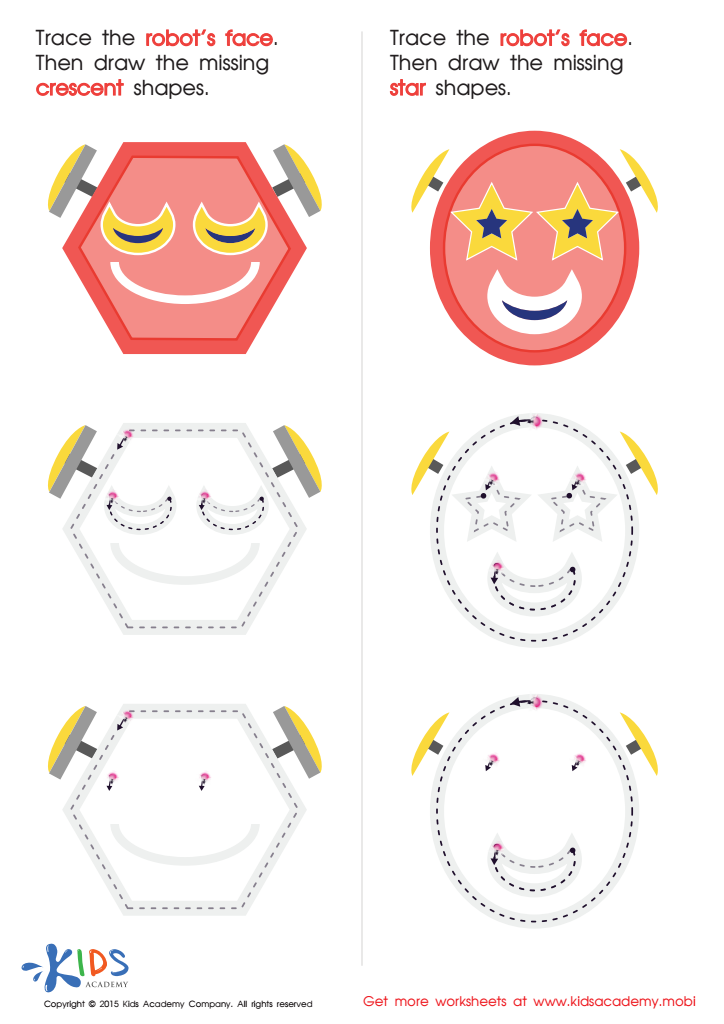

Composing a Robot's Face of Crescents And Stars Worksheet
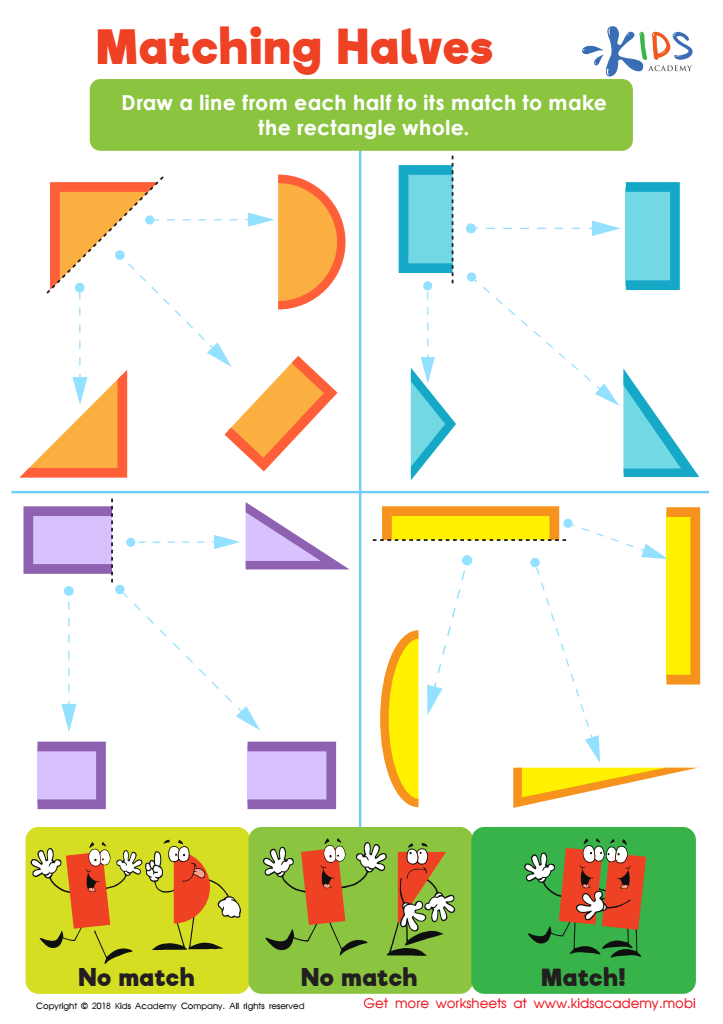

Matching Halves Worksheet
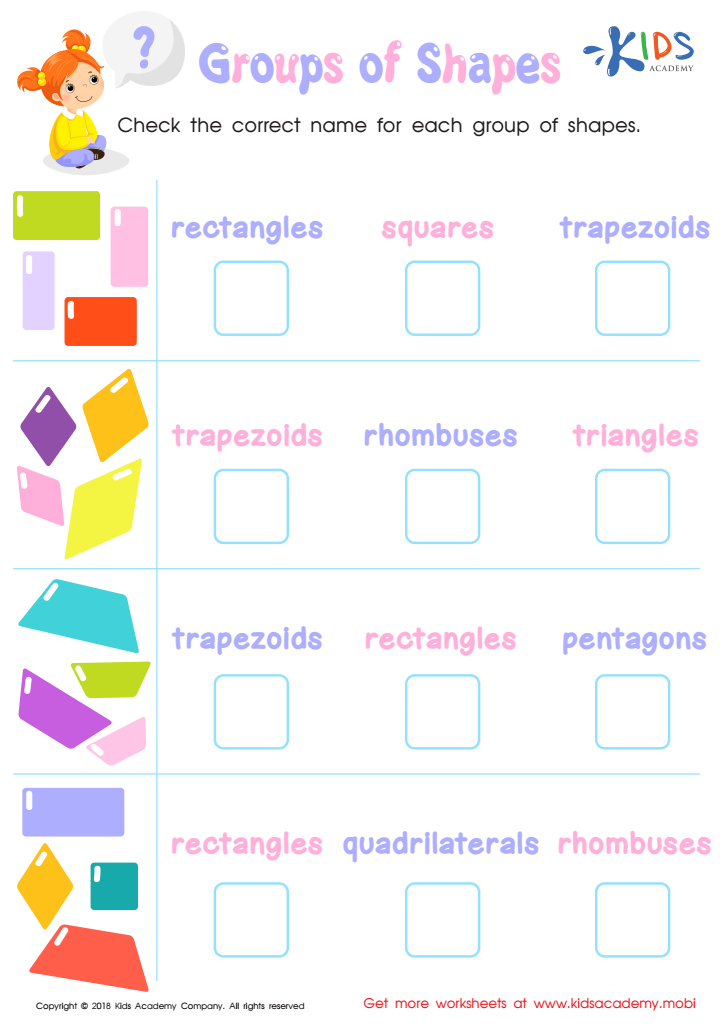

Groups of Shapes Worksheet


Faces of 3D Shapes Worksheet
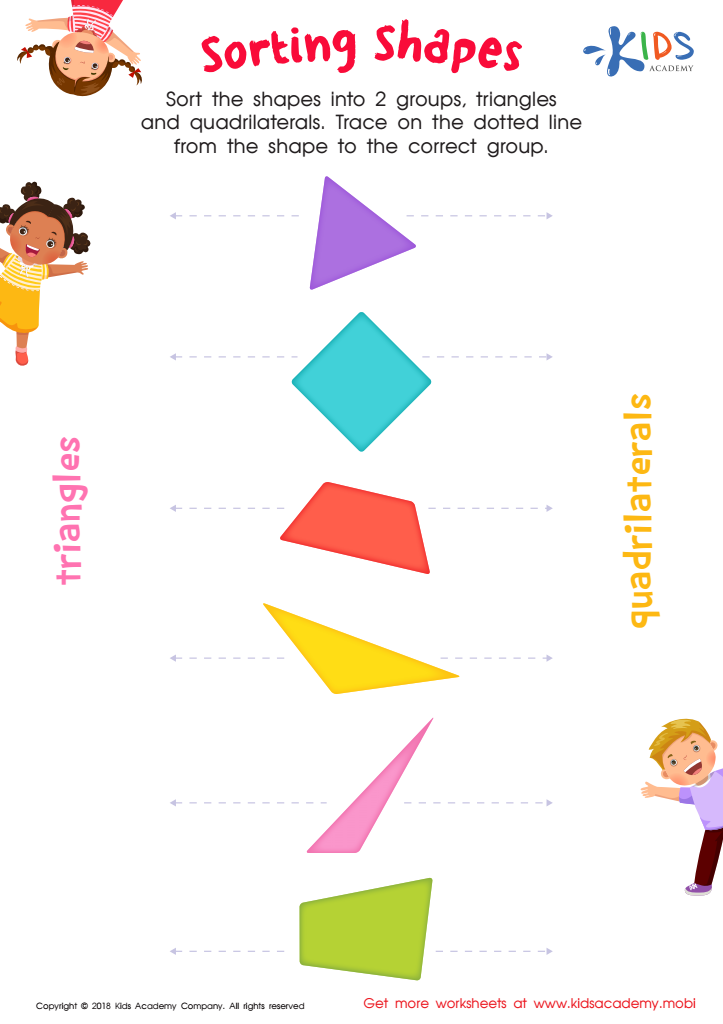

Sorting Shapes Worksheet
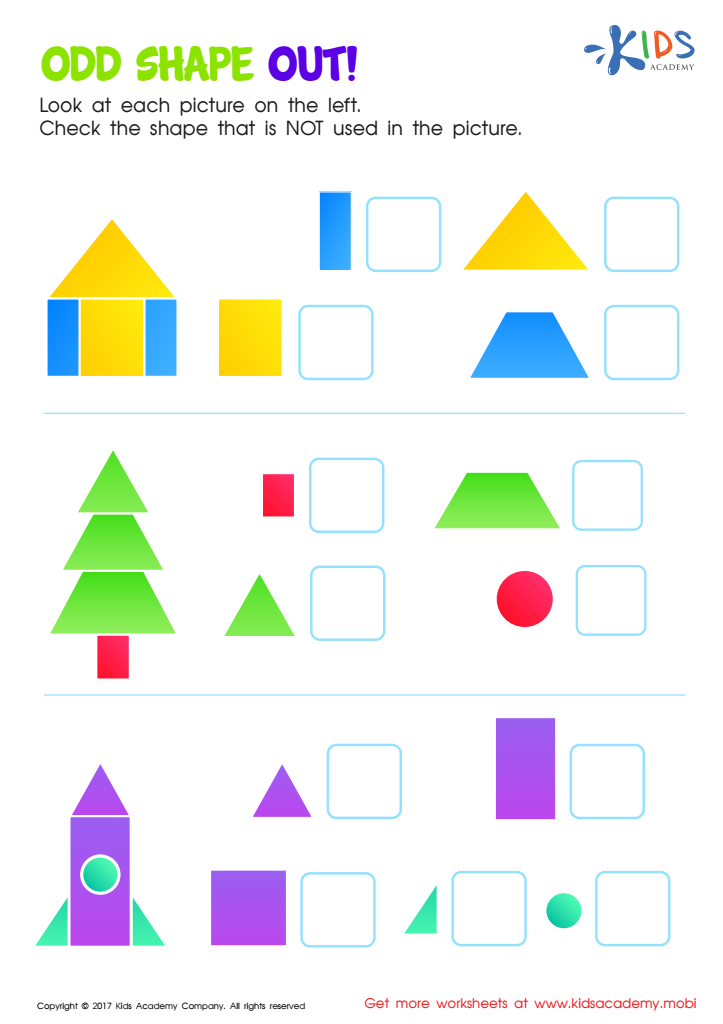

Odd Shape Out Worksheet for Grade 1
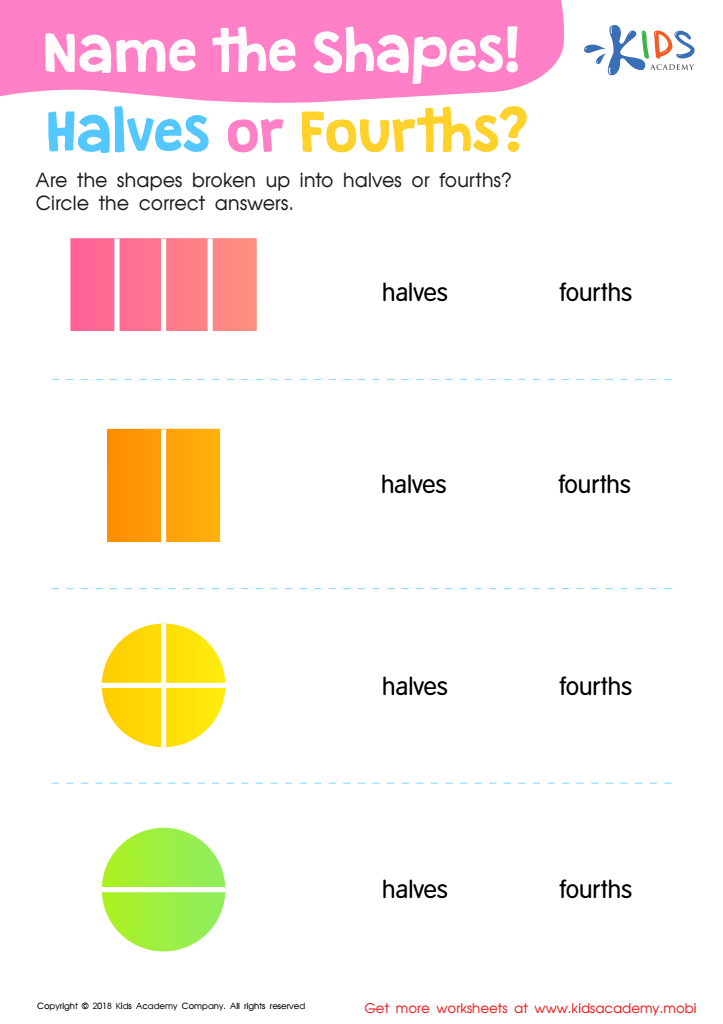

Name the Shapes Halves or Fourths? Worksheet
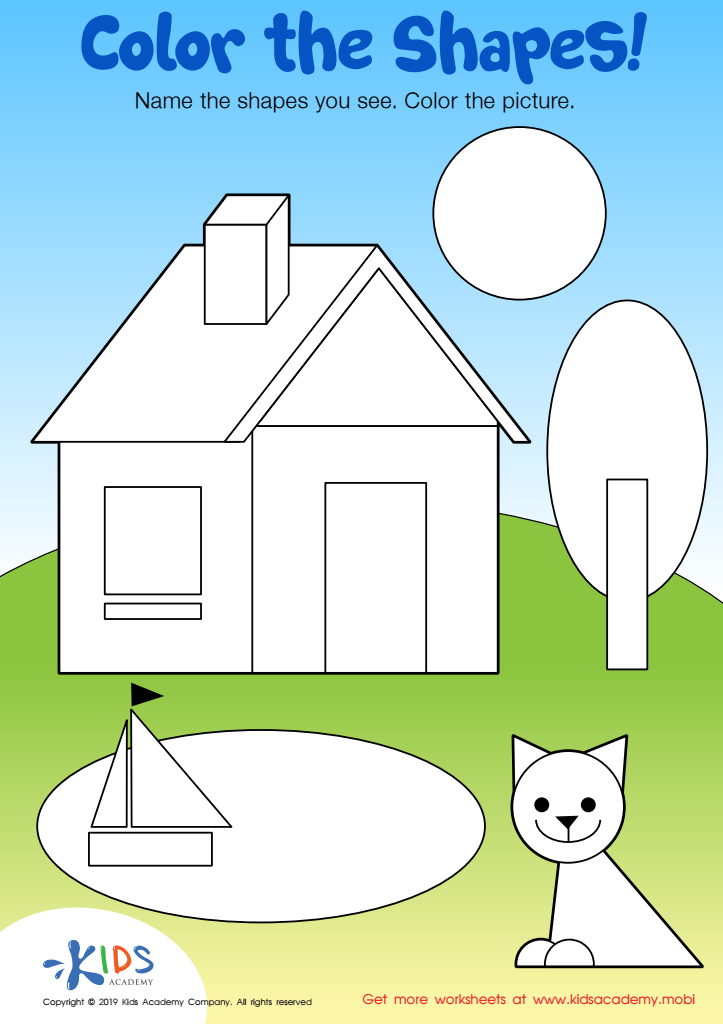

Color the Shapes Worksheet
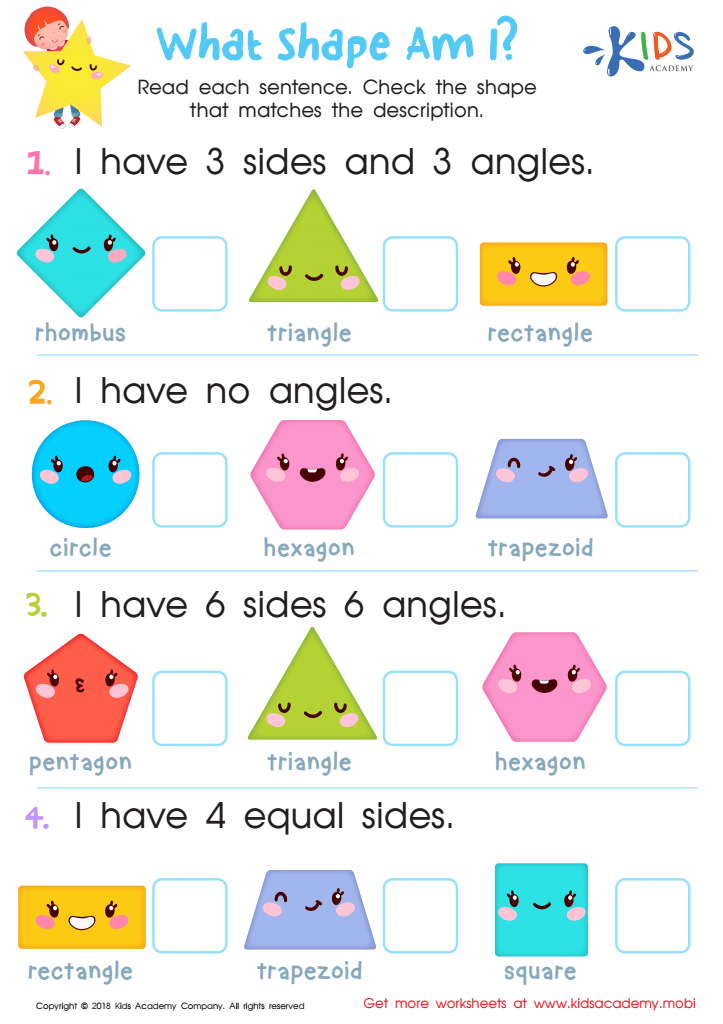

What Shape Am I? Worksheet
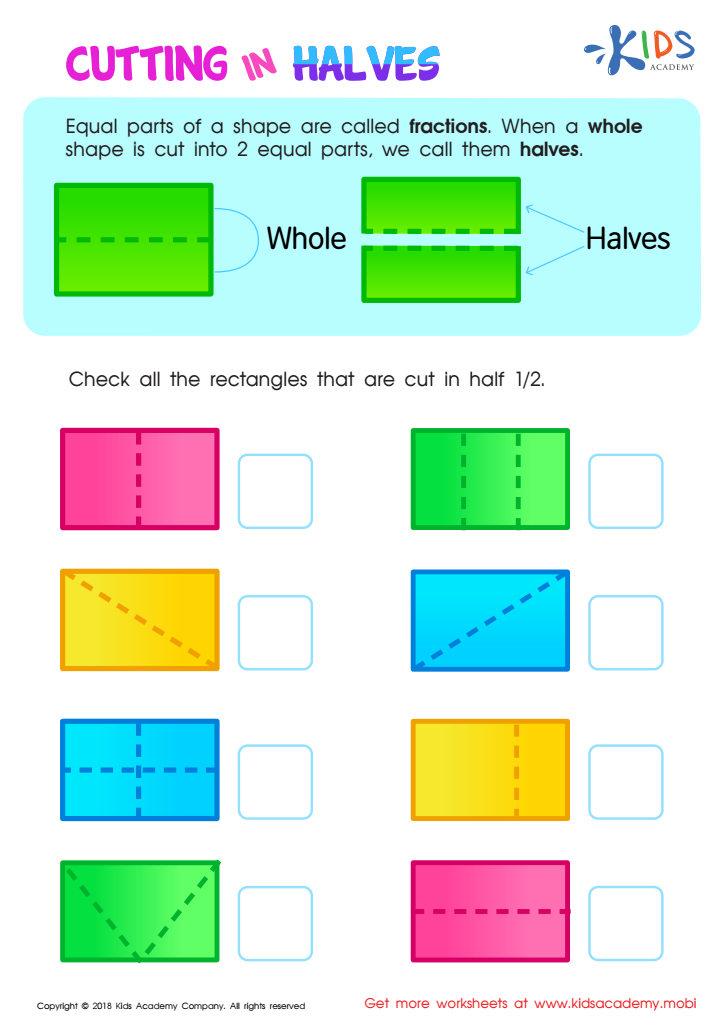

Cutting in Halves Worksheet
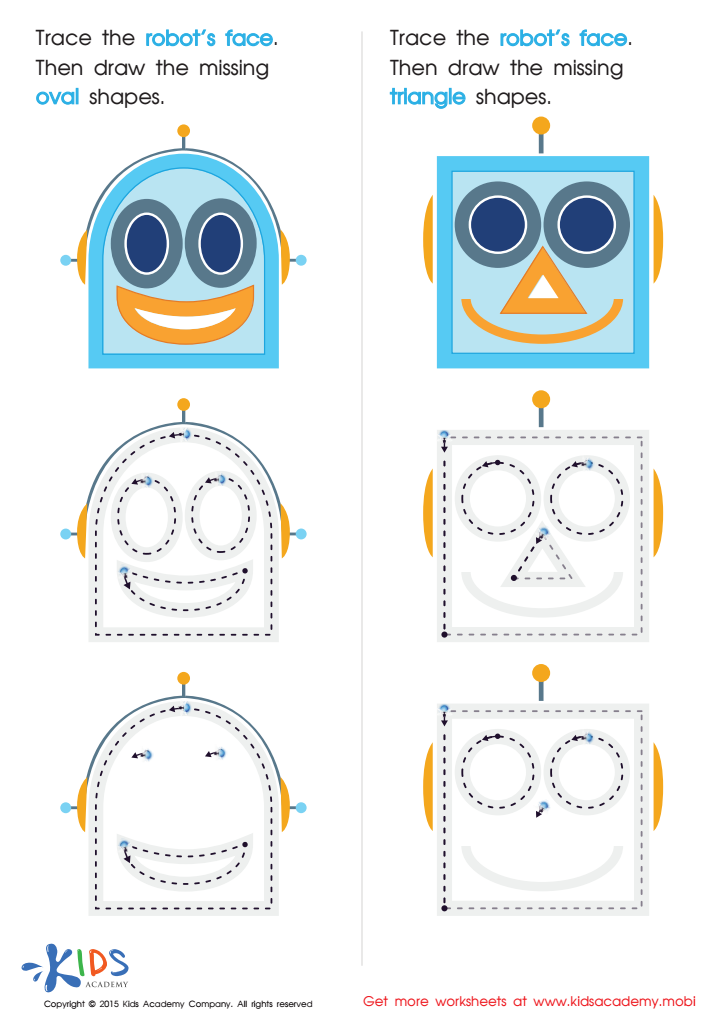

Drawing Ovals And Triangles with Fun Printable
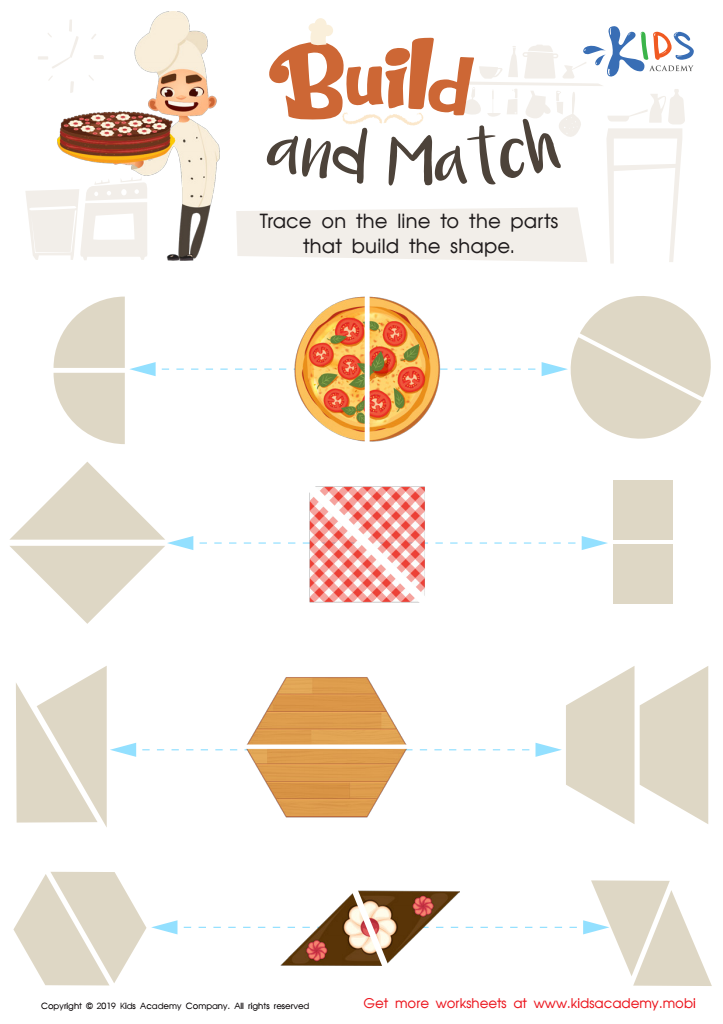

Build and Match Worksheet
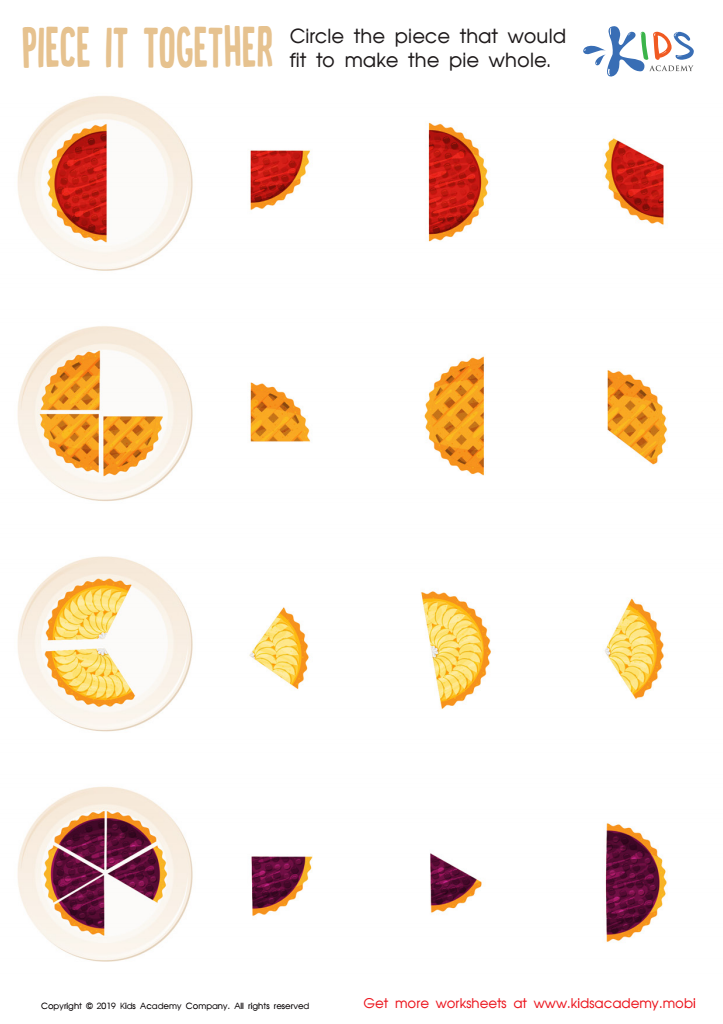

Piece it together Worksheet
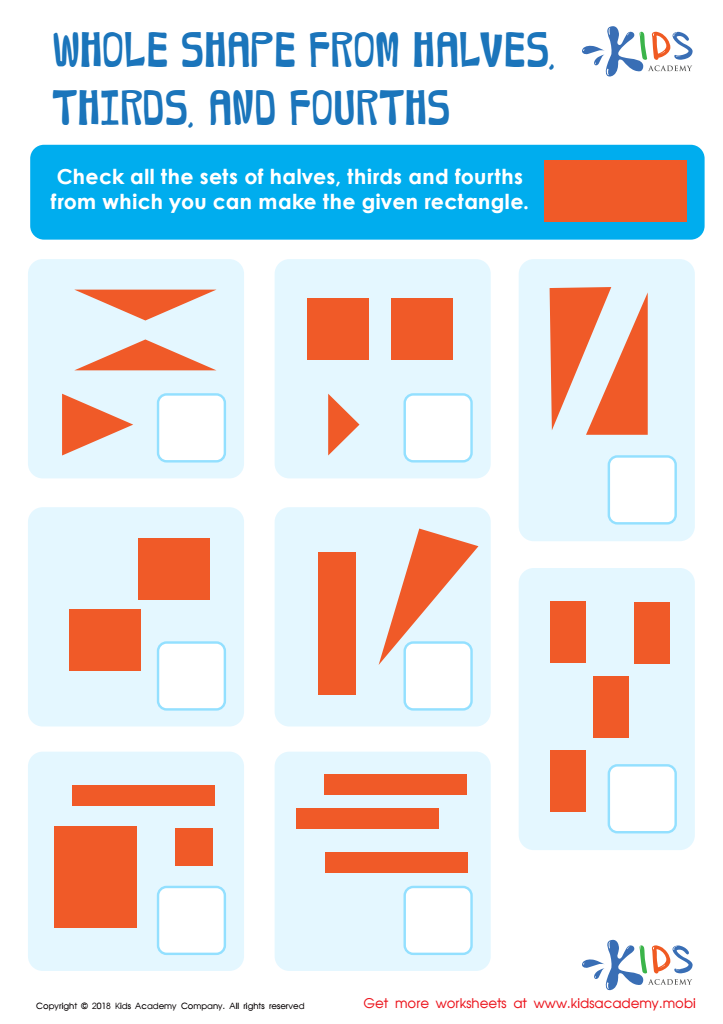

Whole Shape from Halves, Thirds and Fourths Worksheet
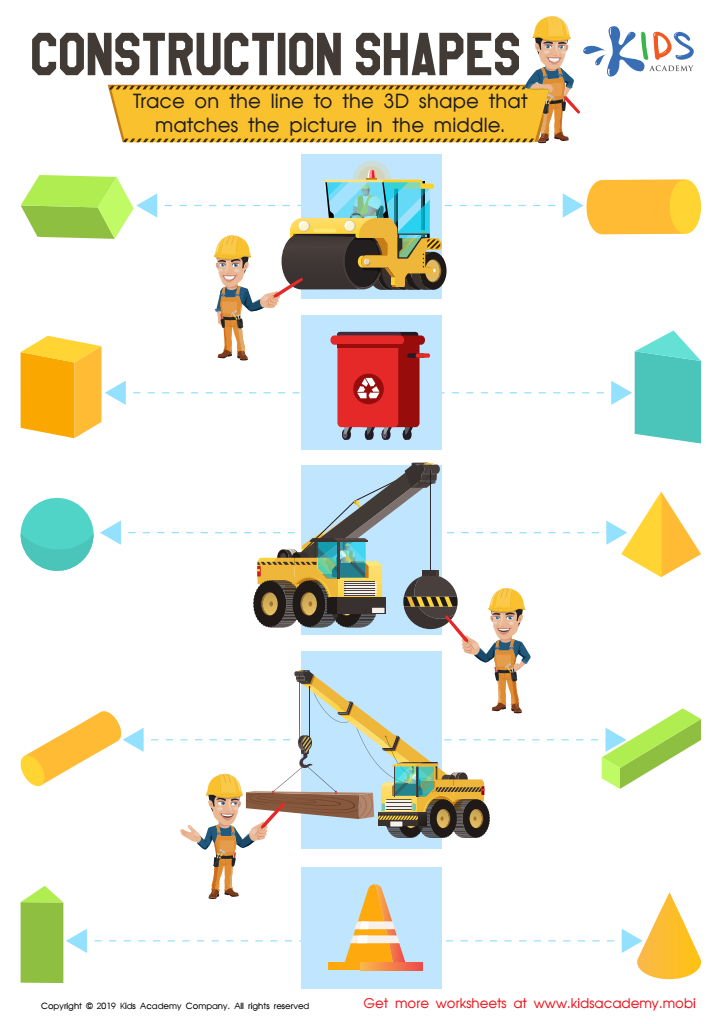

Construction Shapes Worksheet
Shape recognition is a crucial developmental milestone for children aged 3 to 8, making it essential for parents and teachers alike to prioritize easy geometry concepts in early education. Understanding shapes lays the foundation for important cognitive skills, including problem-solving, reasoning, and spatial awareness. By recognizing shapes, children enhance their ability to categorize and make sense of the world around them, which is fundamental for later math and literacy skills.
Moreover, engaging with shapes supports fine motor skills as children manipulate various geometric objects, improving hand-eye coordination and dexterity. Interactive activities that involve identifying and creating shapes can also foster creativity and imagination, encouraging collaborative play and social skills.
Teaching shapes through games and hands-on experiences makes learning enjoyable, and can ignite children’s curiosity about geometry, paving the way for a positive attitude towards math in the future. Parents and teachers should also recognize the importance of shape recognition in everyday life, as it influences navigation, design, and art. In summary, emphasizing easy geometry for young learners prepares them for advanced learning opportunities while supporting their overall cognitive, social, and emotional development.
 Assign to My Students
Assign to My Students


























